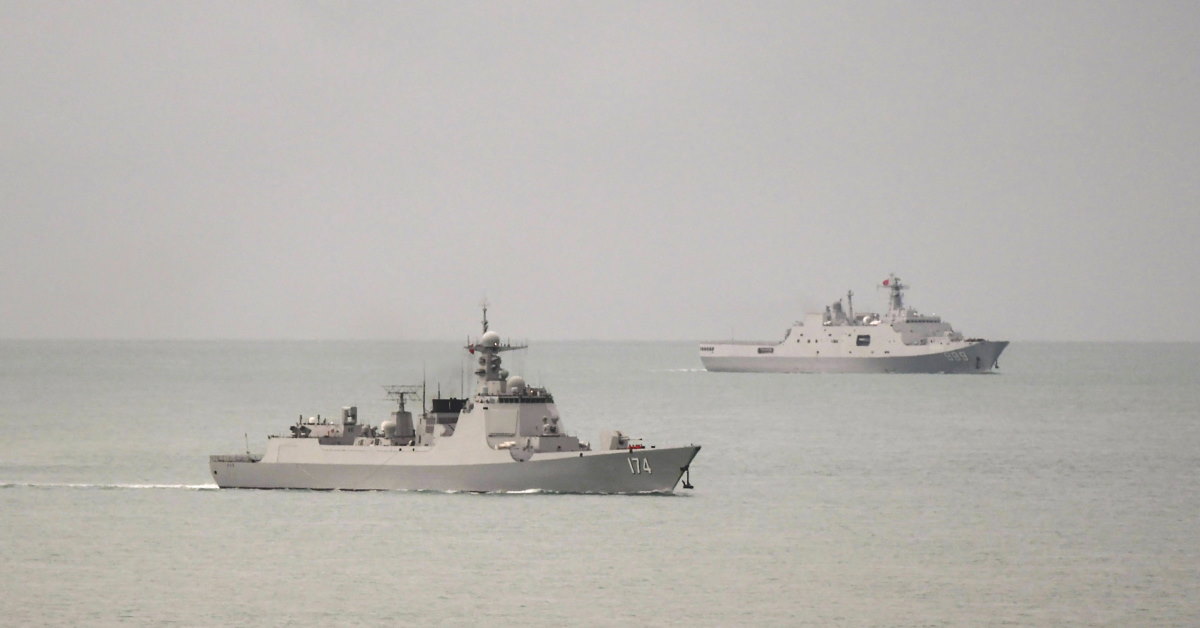The European Union (EU) has resolved to step up its defence strategy in the Indo-Pacific region in light of fears about China’s growing presence and concerns for the international order sparked by Russia’s invasion of Ukraine.
“Our motto is always to cooperate whenever possible, but to defend whenever necessary as well,” said Gabriele Visentin, the EU’s special envoy to the Indo-Pacific. “It’s not directed against a country or another – it’s a way of enhancing our capacity and our credibility in terms of defending our interests.”
Visentin said there was no evidence to suggest a war was imminent in the region – which covers a vast sweep of the globe from the east coast of Africa to the Pacific Island countries – but the EU was concerned the “multilateral rules-based order will not be fully respected”.
“The price tag that has been put on the breach of the multilateral rules-based order is quite high. It’s surely a signal to others who might wish to break the multilateral order in such a violent way, well, then they know what they can encounter.”
China is viewed as the biggest such threat in the region. Visentin said China was seen as “a partner, a competitor and a rival” by the EU. Growing concerns over its military build-up and strategic intentions flared after a draft security pact between China and Solomon Islands was leaked in March, blindsiding the islands’ traditional partners such as Australia, the United States (US) and New Zealand.
The loosely worded deal triggered alarm that regional stability could be jeopardised, with China having the opportunity to base its warships in the Pacific less than 2,000 km off the Australian coast.
While France stated it was “worrying on many levels, particularly concerning China’s ambitions as a regional security actor”, Visentin was reluctant to comment on whether the EU considered it a threat to security, until he had seen the agreement’s details, adding that every state had the right to make sovereign choices.
“But of course, the signal that the Solomon Islands have sent to us is loud and clear: the EU and others have to do more.”
Sujiro Seam, the EU’s ambassador for the Pacific and Solomon Islands, said the deal pointed to the EU’s need to step up in the Pacific region.
“EU’s experience in matters of security and defence in the Pacific is very limited. It is a challenge for the future, and this security agreement between China and the Solomon Islands must be considered in the development of the European Union action on security and defence in the region.
“Traditionally in the Pacific, the European Union has been a development partner. The main challenge is to show that we can be something else, a strategic partner in security and defence.”
In March, the EU approved a plan to strengthen its global security and defence policy. The Strategic Compass, as it is known, sets out a roadmap to improve the EU’s ability to act decisively in crises and defend its security and its citizens.
“The adoption of this strategy is even more relevant, given the war in Ukraine,” Seam said.
“The war in Ukraine is a historic moment that contributes to the affirmation of European ambition in matters of security and defence.”
A more intensive security plan would not involve the establishment of military bases nor the deploying of troops unless in a crisis, Visentin said, but rather conducting military training and live exercises on land and sea, boosting intelligence, and having EU ships pass through zones with maritime interest.
